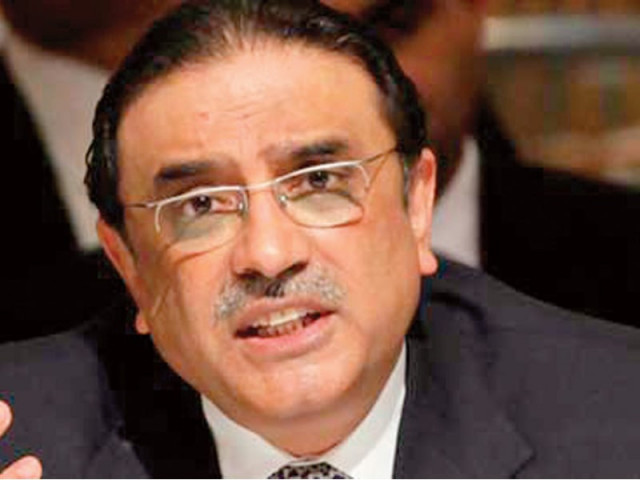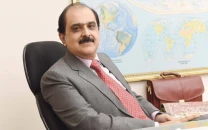Dual offices case: Argue on president’s immunity, court says
Counsel says president not ‘above the law, but answerable to parliament only’.

The Lahore High Court on Wednesday asked the Federation’s counsel to present arguments on the constitutional immunity enjoyed by the president on November 21.
A full bench of the court was hearing a contempt of court petition against President Asif Ali Zardari for not implementing the LHC judgment in a case challenging the two offices held by him.
Wasim Sajjad, the federation’s counsel, challenged the maintainability of the petition. He said filing a contempt petition was not the appropriate way to seek a judicial order against the president.
He told the court that while the president was not above the law, he was only answerable to the president.
He said the president had not been issued an order by the court and the LHC judgment on May 12, 2011, in the main petition against the two offices held by the president had only mentioned an “expectation”.
Chief Justice (CJ) Umar Ata Bandial said a period of one and a half years had lapsed but the order had not been complied with so far.
Advocate Sajjad said the court had not issued a direct order to the president he was not bound to fulfill the court’s “expectation.”
Justice Bandial asked the counsel, “Do you want us to direct the president like an ordinary functionary of the government?”
He said the court had exercised restraint and shown courtesy to the office of the president but had issued a clear declaration against political activities at the presidency. Bandial asked the counsel, “Should the court directly ask the President to shun his political office?”
Justice Ahsan asked the counsel, “How should the court proceed if its expectations are not fulfilled?”
Advocate Sajjad said the court must issue a direct order with any declaration. He said the president was not holding any office prohibited under Article 43 of the Constitution since his political office was not a profitable one.
He also said the president was not a constitutional expert and that his understanding of the judgment could vary from the courts.
He said President Zardari had neither violated any law nor misused his office. He said Article 242 (2) of the Constitution prohibited any criminal proceedings against the president while he was in his office.
He also said the Lahore High Court’s territorial jurisdiction prevented it from passing any restraining order to the presidency, which fell in the jurisdiction of the Islamabad High Court.
CJ Bandial rejected this argument and observed that the president was not confined to the presidency. “Being a symbol of the state, he is everywhere in the country,” he said.
Justice Mansoor Ali Shah said the counsel’s arguments appeared to be circular reasoning.
The bench adjourned the hearing till November 21.
Published in The Express Tribune, November 8th, 2012.



















COMMENTS
Comments are moderated and generally will be posted if they are on-topic and not abusive.
For more information, please see our Comments FAQ